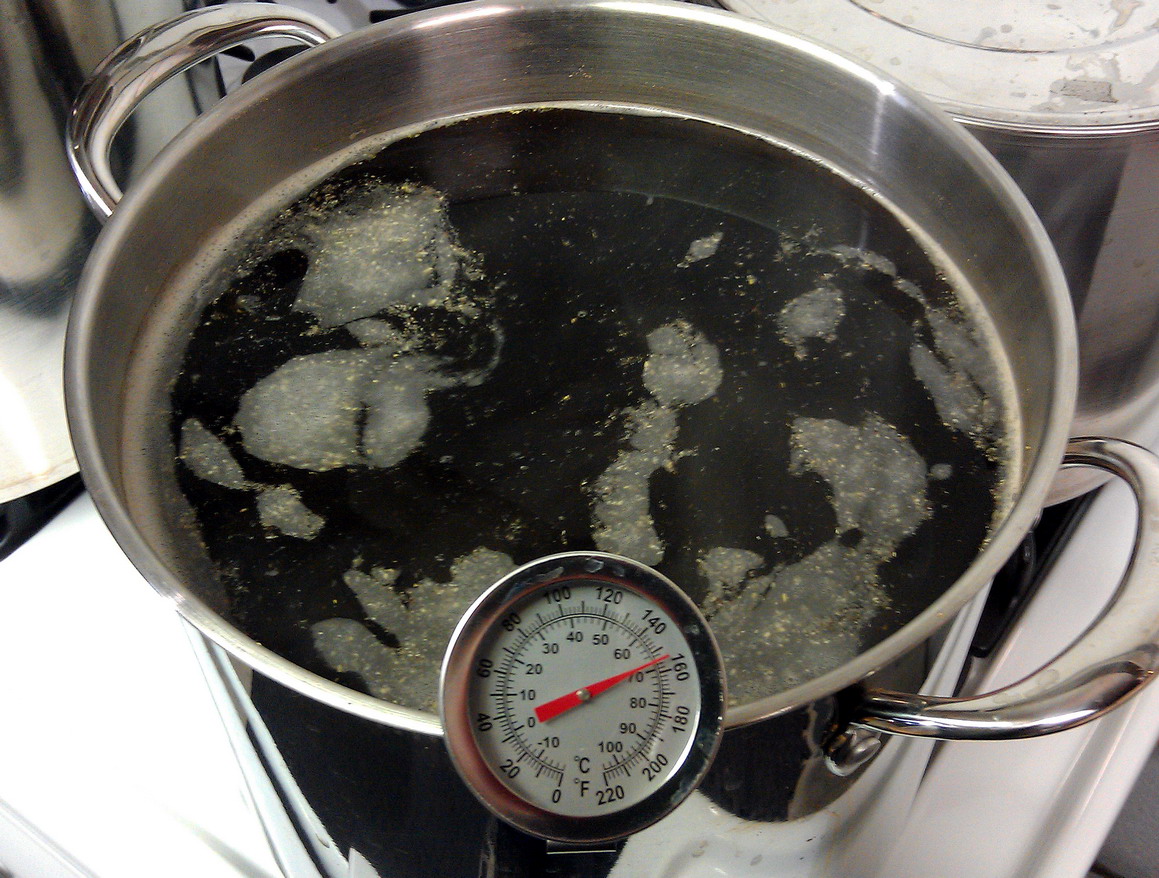JBZSTL
Well-Known Member
I am brewing a Dry Stout Guinness clone recipe from BYO. It calls for the following:
"Place crushed grains and flaked barley in a large steeping bag. Heat 3.2 qts of water to 161F, lower bag into liquid and steep at 150F for 60 minutes. Rinse grains withe 1.5 qts of water at 170F. Add water and roughly half of DME to wort to make pre-boil volume of 3.0 gallons."
I followed the instructions excepting I added additional 1.5 qts of water in the beginning to allow for the majority of the grains to be submersed. I was worried that the grains were not completely submersed.
I noticed during the steep that one side of the kettle the temperature would be at 150F and the other side would be 120-130F. After a while I place my thermometer into the grain bag and found the temperature to be between 180-190F. Obviously I am now worried about the temp being too high and tannins being released. I have never measured the temp from the middle of the grain bag in any of my previous brews. Where should the thermometer be placed to get the most accurate reading?
"Place crushed grains and flaked barley in a large steeping bag. Heat 3.2 qts of water to 161F, lower bag into liquid and steep at 150F for 60 minutes. Rinse grains withe 1.5 qts of water at 170F. Add water and roughly half of DME to wort to make pre-boil volume of 3.0 gallons."
I followed the instructions excepting I added additional 1.5 qts of water in the beginning to allow for the majority of the grains to be submersed. I was worried that the grains were not completely submersed.
I noticed during the steep that one side of the kettle the temperature would be at 150F and the other side would be 120-130F. After a while I place my thermometer into the grain bag and found the temperature to be between 180-190F. Obviously I am now worried about the temp being too high and tannins being released. I have never measured the temp from the middle of the grain bag in any of my previous brews. Where should the thermometer be placed to get the most accurate reading?



